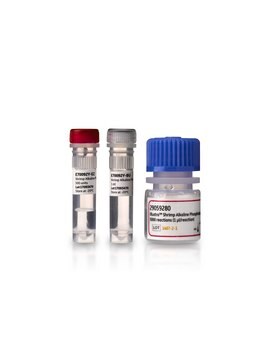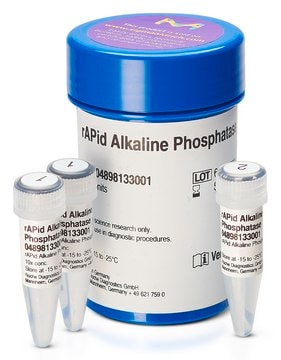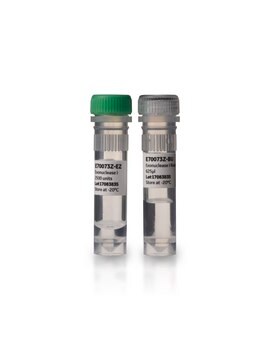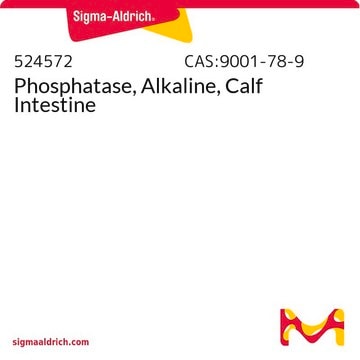A2237
Phosphatase, Alkaline shrimp
≥900 DEA units/mL, buffered aqueous glycerol solution, recombinant, expressed in proprietary host
Synonym(s):
Phosphatase, Alkaline from shrimp, Orthophosphoric-monoester phosphohydrolase (alkaline optimum)
About This Item
Recommended Products
recombinant
expressed in proprietary host
Quality Level
form
buffered aqueous glycerol solution
concentration
≥900 DEA units/mL
foreign activity
RNAse, DNAse, none detected
shipped in
dry ice
storage temp.
−20°C
Looking for similar products? Visit Product Comparison Guide
General description
Application
Biochem/physiol Actions
Unit Definition
Physical form
Analysis Note
Signal Word
Danger
Hazard Statements
Precautionary Statements
Hazard Classifications
Resp. Sens. 1
Storage Class Code
10 - Combustible liquids
WGK
WGK 2
Flash Point(F)
Not applicable
Flash Point(C)
Not applicable
Choose from one of the most recent versions:
Certificates of Analysis (COA)
Don't see the Right Version?
If you require a particular version, you can look up a specific certificate by the Lot or Batch number.
Already Own This Product?
Find documentation for the products that you have recently purchased in the Document Library.
Customers Also Viewed
Our team of scientists has experience in all areas of research including Life Science, Material Science, Chemical Synthesis, Chromatography, Analytical and many others.
Contact Technical Service








